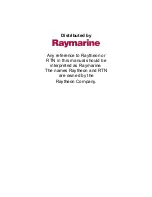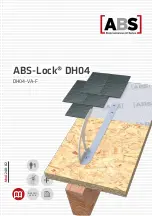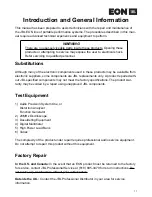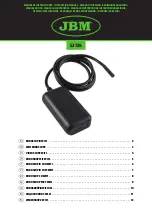
26
27
hear a sloping signal, which gradually dies out. The gre-
ater the capacitor’s capacitance, the longer the fall time
of the signal.
If while the capacitor is being tested, a continuous signal
similar to the short-circuit signal sounds, the capacitor is
faulty (internal short circuit).
If no signal sounds while a capacitor is being tested, either
the capacitance is below the practical test range or an
internal interruption has occurred.
Please respect the max. connection value of a capacitor
in the ex-area!
7.6 testing / calculating inductance
Besides the active internal resistance of an inductance, the
inductance itself is also measured. As inductance incre-
ases, the frequency of the measured tone drops below that
of the reference tone.
Please respect the max. connection value of an inductance
in the ex-area!
7.7 testing / measuring diodes
Ensure correct polarity when performing the diode test!
If the red test probe (positive terminal) is connected to the
anode and the black test probe (negative terminal) is con-
nected to the cathode, the diode is tested in the continuity
direction. In this case, the pitch must approximate that of
the short circuit signal.
If the same test is now performed in the no continuity
direction and no signal is heard, the diode is in sound
working order.
7.8 Measurements on non-intrinsically safe circuits
Please note the following:
After being used on non-intrinsically safe electrical cir-
cuits, the continuity tester must be subjected to a function
test (see Item 7.1 – Getting started) and a dwell time of 5
minutes must pass before the continuity tester can be used
in potentially explosive areas.
8. Repairs
The national regulations and guidelines for repairs vary
from country to country. We therefore recommend that re-
pairs are conducted by ecom instruments GmbH to ensure
a safety inspection is implemented.
9. Cleaning, maintenance and storage
Only use a suitable cloth or sponge to clean the device.
Do not use solvents or abrasive cleaning agents to clean
the device.
We recommended having the function and the accuracy of
the device checked by the manufacturer every two years.
The batteries should be taken out of the device if it is to be
stored for a long time.
The storage temperature should be within the permitted
ranged of -20°C to +50°C.
10. Disposal
Old electrical devices as well as „historical“ old electrical
devices from ecom instruments GmbH are supplied for
disposal at our expense and disposed of free of charge in
accordance with European Directive 2002/96/EC and the
German electrical law of 16/03/2005. The costs associated
with returning devices to ecom instruments GmbH are to be
borne by the sender.
In accordance with “Directive 2006/66/EC on batteries and
accumulators and waste batteries” we are obligated to pro-
vide you with the following information:
Your device contains an alkaline battery.
Depleted batteries should never be disposed of along with
normal or household waste. Old batteries can contain
harmful substances that are hazardous to health and da-
maging to the environment. Please return the batteries.
Return is free of charge and required by law. Please only
dispose of discharged batteries in the designated contai-
ners.















































